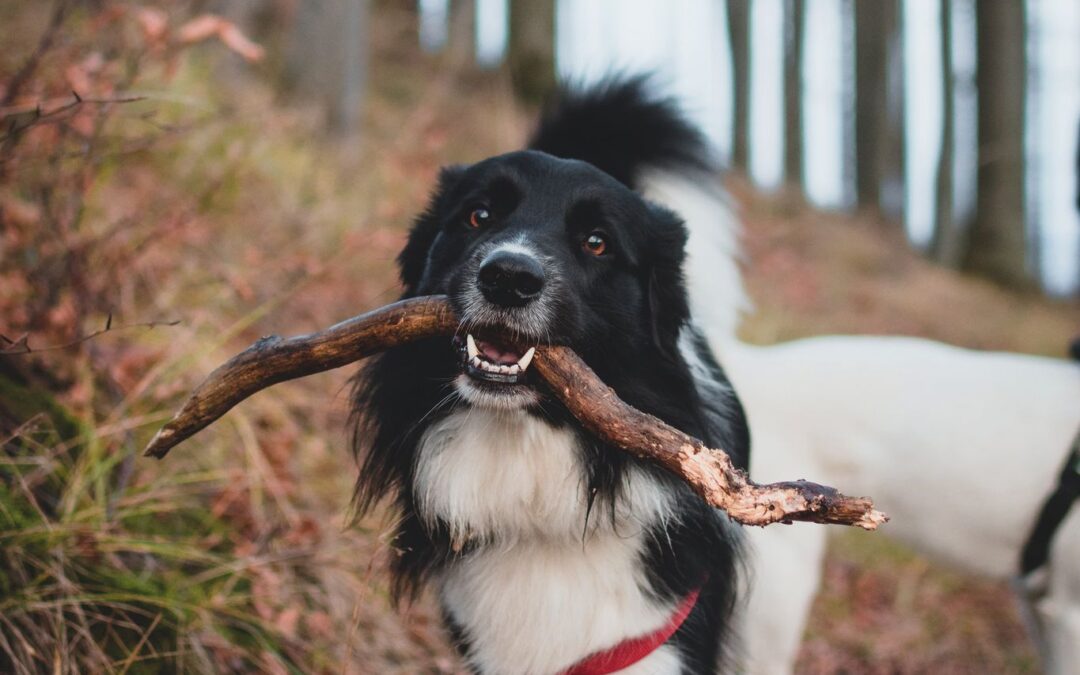Clean, sparkly teeth are important for human health but pets also benefit from regular dental care. A little training and regular inspections not only help save your pet from costly veterinary interventions and the risks of sedation and general anaesthetic, but will keep them healthier overall. There is of course the additional benefit of avoiding the breath of death!
Dogs
Teach your puppy to be comfortable having his whole mouth and throat inspected and work towards cleaning those teeth. This is best achieved in tiny stages, using one of a variety of specialist enzymatic toothpastes. Please never use human toothpaste as this could be poisonous. Even elderly dogs can be taught to have their teeth cleaned! Before brushing, get into the habit of looking and feeling inside your dog’s mouth. Bad breath, red, swollen or bleeding gums, yellow or brown plaque, lumps and bumps can all be signs of a problem. An additional benefit is that if your dog accepts you exploring his mouth it may be easier to remove something dangerous on the rare occasion you might have to.
Cats
Teaching felines to have their teeth inspected and brushed will be more difficult, much depends on how tolerant the cat is about handling in general. It is best to start young and always use specialist toothpaste. Begin by getting the puss to lick tuna water or similar off your fingers and slowly increase contact with the gums and teeth, before progressing to doing the same with toothpaste on your fingers and then on a q tip. Learn to cradle your cat from behind, cupping his chin and gently lift each lip before cleaning the teeth. A quality diet and access to appropriate chews, will help keep teeth clean in both cats and dogs, but seek veterinary advice first. Be alert to signs of a dental problem. Cats are often better at hiding pain than are dogs. Fastidious cats that suddenly become messy eaters or reluctant to eat, should be checked at the vet.
Rabbits
Rabbits have teeth that never stop growing. Front teeth that grow too long or are misaligned can interfere with grooming and eating. Rabbit teeth should be checked every week and you should train your bunny to be comfortable with this. Rabbits that are in pain will often hunch their bodies and grind their teeth and painful teeth also cause rabbits to dribble. Do not try to trim your rabbit’s teeth at home. This is a job for the vet. A quality, high fibre diet will help wear down rabbit teeth naturally.
Birds
Birds do not have teeth but their beaks require care and even clipping. Beaks are made up of living tissues, the outer layer is rather like human fingernails and it grows. Wild birds have many opportunities to wear down their beaks looking for food, nest building and so on. Pet birds do not have the same freedom. Owners often think a beak has overgrown when it has not but home trims are dangerous; it is always best to get veterinary advice. Depending on the bird’s size your vet will use a dremel or emery board, to gently file the beak. Owners should provide home enrichment, allowing pets to file their beaks naturally. Cuttlefish is ideal for smaller birds while sturdy wooden chew toys are great for larger birds. Finally, appropriate hard foods, like nuts and seeds are ideal.
Leonie St Clair|www.londondogstraining.co.uk

